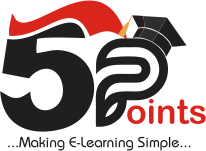Studying and preparing for exams can be tedious and difficult. However, knowing how to plan your studies would enable you to study effectively. As a student, there will be other activities that would occupy your time and if you don't find time to plan your study, you might end up procrastinating or studying the wrong way. From the very first day of class/term/semester, you should create a study plan and start studying. This way, when the time comes to prepare for an exam, your study materials won't be new or unfamiliar to you. This will also help you avoid cramming.
Here are some other tips that can use to make your study easier and effective.
- Create Cheat Sheets
Try to condense the materials you are studying for exams into one little summary. Doing this would help you learn the most important part of the materials. This will help you encode the information in your brain. Your brain learns fast through active recall (working hard to pull out information from your head). Before stepping into the exam hall, revise the condense materials. This way, you will study the most important in the most efficient way.
NOTE: Don't be tempted to take the cheat sheets inside the examination hall. It should only be used as reminders.
- Create quizzes out of your study material
Just like creating cheat sheets, you are forcing yourself to condense the most important information that you are studying in a more compact format. But then you are also bringing some pressure into the situation by forcing yourself to take the quiz. Past questions can also aid in creating these quizzes.
- Simulate the test conditions when you are studying
This means going to the examination hall to study, simulating the time constraints of the test/exam that you are preparing for, and also getting past questions and answers. Do whatever you can to make your study sessions mere the actual test.
- Visualize the area where you study
Research has shown that learning is context-dependent. If you find yourself stuck on a question during an exam, try to visualize the study area. From researches conducted, it was discovered that it is easier to recall a piece of information in a study material if one can reinstate or visualize the environment where the study took place. Say you studied in the library, and you visualize the library, the memory of that study location might help you forge connections to the materials you are trying to remember.
- Try reviewing your study sessions while doing less strenuous activities
If you are having trouble grasping a certain concept, try going out for a walk, light exercise, listening to a classical/ ambient instrumental music and reviewing your study material while at it. When doing some less strenuous activities, your brain gets oxygen, blood, nutrients and makes better connections. As a result of which you tend to look at the problem from a different angle.
- Use a study technique that will help you recall what you studied
Study techniques can make your study sessions meaningful and interactive. Study techniques like Mind Map would help you simplify and get a better understanding of some important theories you might be learning. Other kinds of techniques could involve Auditory technique which is basically speaking or having discussions with friends, having group study sessions, ask questions, and teaching friends.
- Create an exam study checklist/calendar
As you exam date approaches, you should have a checklist that would ensure you revise your study materials. Each time you cover a topic on the checklist, mark it as done.
- See exams/tests as part of the learning process
Viewing exams as kind of judgments can make them scary and might cause undue stress. Instead, try to look at exams as a way of trying to recall what you have learned.
These are some tips to help improve your study sessions. Would you like to implement any?
Note: You don't have to try all these tips at once. Just pick one or two that will help improve your study sessions.
Leave your comments/questions below and I will respond to every question.












